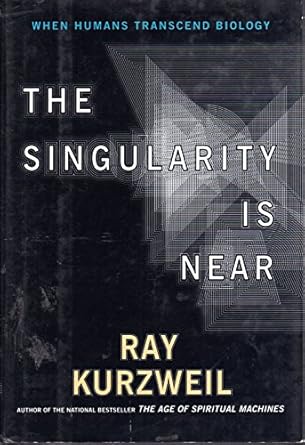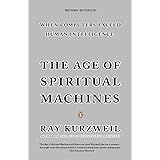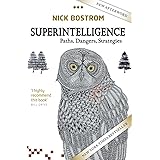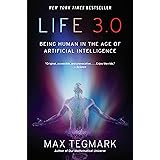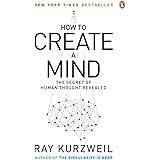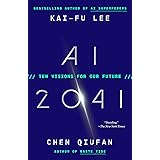
Enjoy fast, free delivery, exclusive deals, and award-winning movies & TV shows with Prime
Try Prime
and start saving today with fast, free delivery
Amazon Prime includes:
Fast, FREE Delivery is available to Prime members. To join, select "Try Amazon Prime and start saving today with Fast, FREE Delivery" below the Add to Cart button.
Amazon Prime members enjoy:- Cardmembers earn 5% Back at Amazon.com with a Prime Credit Card.
- Unlimited Free Two-Day Delivery
- Streaming of thousands of movies and TV shows with limited ads on Prime Video.
- A Kindle book to borrow for free each month - with no due dates
- Listen to over 2 million songs and hundreds of playlists
- Unlimited photo storage with anywhere access
Important: Your credit card will NOT be charged when you start your free trial or if you cancel during the trial period. If you're happy with Amazon Prime, do nothing. At the end of the free trial, your membership will automatically upgrade to a monthly membership.
Buy new:
$45.27$45.27
Ships from: Amazon Sold by: MOM JANNY SHOP
Save with Used - Acceptable
$18.48$18.48
Ships from: Amazon Sold by: The BAP Goods





Download the free Kindle app and start reading Kindle books instantly on your smartphone, tablet, or computer - no Kindle device required.
Read instantly on your browser with Kindle for Web.
Using your mobile phone camera - scan the code below and download the Kindle app.

OK
 Audible sample Sample
Audible sample Sample 


The Singularity Is Near: When Humans Transcend Biology Hardcover – September 22, 2005
Purchase options and add-ons
The Singularity Is Near portrays what life will be like after this event—a human-machine civilization where our experiences shift from real reality to virtual reality and where our intelligence becomes nonbiological and trillions of times more powerful than unaided human intelligence. In practical terms, this means that human aging and pollution will be reversed, world hunger will be solved, and our bodies and environment transformed by nanotechnology to overcome the limitations of biology, including death.
We will be able to create virtually any physical product just from information, resulting in radical wealth creation. In addition to outlining these fantastic changes, Kurzweil also considers their social and philosophical ramifications. With its radical but optimistic view of the course of human development, The Singularity Is Near is certain to be one of the most widely discussed and provocative books of 2005.
- Print length672 pages
- LanguageEnglish
- PublisherThe Viking Press
- Publication dateSeptember 22, 2005
- Reading age18 years and up
- Dimensions6.35 x 2.09 x 9.52 inches
- ISBN-100670033847
- ISBN-13978-0670033843
Frequently bought together

Similar items that may deliver to you quickly
Editorial Reviews
From Publishers Weekly
Copyright © Reed Business Information, a division of Reed Elsevier Inc. All rights reserved.
From Bookmarks Magazine
Copyright © 2004 Phillips & Nelson Media, Inc.
From Booklist
Copyright © American Library Association. All rights reserved
From the Back Cover
"Ray Kurzweil is the best person I know at predicting the future of artificial intelligence. His intriguing new book envisions a future in which information technologies have advanced so far and fast that they enable humanity to transcend its biological limitations-transforming our lives in ways we can't yet imagine."
-Bill Gates
"A brilliant book with deep insights into the future from one of the leading futurists of our time."
-Marvin Minsky, Toshiba Professor of Media Arts and Sciences, MIT
"If you have ever wondered about the nature and impact of the next profound discontinuities that will fundamentally change the way we live, work, and perceive our world, read this book. Kurzweil's Singularity is a tour de force, imagining the unimaginable and eloquently exploring the coming disruptive events that will alter our fundamental perspectives as significantly as did electricity and the computer."
-Dean Kamen, physicist and inventor of the first wearable insulin pump, the HomeChoice portable dialysis machine, the IBOT Mobility System, and the Segway Human Transporter; recipient of the National Medal of Technology
"One of our leading AI practitioners, Ray Kurzweil, has once again created a 'must-read' book for anyone interested in the future of science, the social impact of technology, and indeed the future of our species. His though-provoking book envisages a future in which we transcend our biological limitations, while making a compelling case that a human civilization with superhuman capabilities is closer at hand than most people realize."
-Raj Reddy, founding director, Robotics Institute, Carnegie Mellon University; recipient of the Turing Award from the Association for Computing Machinery
"Ray's optimistic book well merits both reading and thoughtful response. For those like myself whose views differ from Ray's on the balance of promise and peril, The Singularity is Near is a clear call for a continuing dialogue to address the greater concerns arising from these accelerating possibilities."
-Bill Joy, cofounder and former chief scientist, Sun Microsystems
About the Author
Ray Kurzweil is a prize-winning author and scientist. Recipient of the MIT-Lemelson Prize (the world’s largest for innovation), and inducted into the Inventor’s Hall of Fame, he received the 1999 National Medal of Technology. His books include The Age of Spiritual Machines and The Age of Intelligent Machines.
Visit Ray Kurzweil on the web:
http://www.kurzweiltech.com
http://www.kurzweilai.net/
Product details
- Publisher : The Viking Press; First Edition (September 22, 2005)
- Language : English
- Hardcover : 672 pages
- ISBN-10 : 0670033847
- ISBN-13 : 978-0670033843
- Reading age : 18 years and up
- Item Weight : 2.14 pounds
- Dimensions : 6.35 x 2.09 x 9.52 inches
- Best Sellers Rank: #106,475 in Books (See Top 100 in Books)
- Customer Reviews:
About the author

Ray Kurzweil is a world class inventor, thinker, and futurist, with a thirty-five-year track record of accurate predictions. He has been a leading developer in artificial intelligence for 61 years – longer than any other living person. He was the principal inventor of the first CCD flat-bed scanner, omni-font optical character recognition, print-to-speech reading machine for the blind, text-to-speech synthesizer, music synthesizer capable of recreating the grand piano and other orchestral instruments, and commercially marketed large-vocabulary speech recognition software. Ray received a Grammy Award for outstanding achievement in music technology; he is the recipient of the National Medal of Technology and was inducted into the National Inventors Hall of Fame. He has written five best-selling books including The Singularity Is Near and How To Create A Mind, both New York Times best sellers, and Danielle: Chronicles of a Superheroine, winner of multiple young adult fiction awards. His forthcoming book, The Singularity Is Nearer, will be released June 25, 2024. He is a Principal Researcher and AI Visionary at Google.
Customer reviews
Customer Reviews, including Product Star Ratings help customers to learn more about the product and decide whether it is the right product for them.
To calculate the overall star rating and percentage breakdown by star, we don’t use a simple average. Instead, our system considers things like how recent a review is and if the reviewer bought the item on Amazon. It also analyzed reviews to verify trustworthiness.
Learn more how customers reviews work on AmazonReviews with images
-
Top reviews
Top reviews from the United States
There was a problem filtering reviews right now. Please try again later.
Anyone who has ever played around with the arithmetic of compounding and exponential growth knows how crazy the numbers get as growth feeds on itself. The phenomenon is quite real in the world, and it describes everything from viral epidemics to Warren Buffet's fortune. Kurzweil applies the exponential growth paradigm to the future of technology. He sees not only change itself accelerating, but the rate of change too, if you can go back to your high school calculus and wrap your mind around that stomach-churning concept. The math starts quickly approaching infinity, which is why it's so weird.
"Singularity" is a common term-of-art among theoretical physicists, who apply it to a variety of seemingly irrational constructs, such as an infinitely large mass compressed towards an infinitely small point. Kurzweil co-opts the term for his own purpose here to mean the point in time where artificial intelligence starts exceeding human intelligence. Thereafter, it takes over its own programming and, being so powerful, does a better and better job of it. Because things are already moving so fast today, the accelerating rate of change means that Kurzweil's Singularity is closer than even optimists might imagine - hence the book's title. He projects it to occur somewhere in the middle of this century. Afterwards, nothing will ever again be the same.
In physics, unimaginable things start happening at singularity points, like energy explosions within black holes. Following Kurzweil's Singularity, the most garish science fiction fantasies start becoming commonplace. The combination of genetics, nanotechnology and robotics - which he refers to collectively as GNR - will transform all aspects of human existence. He believes, for example, that nanobots released into a person's bloodstream, will facilitate a comprehensive (that is to say, 100%) map of that person, including genetic code and nervous system, that can be uploaded and downloaded at will onto new "substrates". In other words, robotic copies of human beings - body, mind, memories, and (one presumes) soul - can be made that will appear indistinguishable from the originals. And for that matter, those originals themselves can be re-shaped at will, giving us all the opportunity to become brilliant, strong, happy, and beautiful.
Kurzweil tells us that artificial circuits replicating themselves at a molecular level will merge with the biological circuits that constitute our nervous systems, giving rise an "enhanced" human super-intelligence. Once this starts happening, what we now call the Internet will in effect become telepathic, giving these enhanced humans instantaneous access to all available knowledge and information as they fashion their brave new world. You see how explosive this gets? And it's just the beginning.
Once the process gets underway, the evolving super-intelligence keeps expanding until it permeates the entire planet and, still accelerating, eventually the universe. Kurzweil suggests that movement though time-space "wormholes" should one day facilitate rapid travel beyond our own galaxy, taking the process literally everywhere.
I realize that my amateur's survey of Kurzweil's thinking here makes him sound like a crank. However, let there be no mistake: he is an accomplished scientist and a highly sophisticated thinker. MIT-trained, he's an expert in artificial intelligence and has put his ideas into practice as a successful tech entrepreneur. Most of this book is not even devoted to prognostications, but to an in-depth review of research currently underway that lays the practical groundwork for virtually everything he talks about (except maybe the wormhole business). While he makes numerous leaps of faith in taking us from here to there, none of his forecasts represent sheer fantasy. He is an extremely good writer, and while staying true to what is in fact pretty complex science, describes it all in a way that makes it reasonably clear to lay readers.
For all his hardcore materialism, Kurzweil also has a whimsical streak. Every 50 pages or so, he breaks up his text with imaginary light-hearted debates among himself (appearing as "Ray"), various historical figures - Darwin, Freud, etc. - and a person named "Molly", who seems to be a student. Molly is bright, curious, skeptical, and not in the least bit awed by Ray or the others. The thing about Molly is that she appears in two separate guises: Molly 2004 (the year this book was being written), and Molly 2104, which is of course well beyond the Singularity. One of Kurzweil's key forecasts is that future science will learn how to arrest and even reverse the aging process, allowing people more-or-less to live forever at whatever age they choose. So Molly has made it through the Singularity and returned as a still-young woman to speak about it from experience.
Kurzweil is fully aware of the potential downside to his vision. He devotes one long chapter to what he calls "The Deeply Intertwined Promise and Peril of GNR". He devotes another even longer chapter to responding to critics, who have attacked his ideas from every possible perspective. While he treats most criticisms respectfully, in the end he largely dismisses them all. One partial exception and the one specific fear he himself does seem to harbor is of self-replicating nanobots. He and other scientists who seriously debate such stuff even have a short-hand term for this specter: The Grey Goo Problem. Were self-replication somehow to spin out of control, Kurzweil explains to us that in a matter of days it could, in theory, consume the Earth's entire biomass and reduce it to "grey goo". This is indeed a troubling prospect, since this endangered biomass includes all of us.
Interestingly, the cluster of criticisms that he responds to most gently are those arising from a spiritualist perspective. In one of his imaginary debates with "Molly", she repeatedly asks "Ray" if he believes in God. Ray surprises by dodging the question every time rather than saying no. Badgered into a corner, he finally avers: "For the sake of your question, we can consider God to be the universe, and I said that I believe in the universe." This sounds suspiciously like a yes, albeit with a twist. He then goes on to explain how his entire vision can be described as a picture of the universe "waking up" as enhanced human intelligence pervades its many corners. Religious people of an unorthodox bent might be tempted to embrace this image as God's self-realization. Fundamentalists of every stripe, however, were they to take K's cosmology seriously at all, would view it with disgust as the self-realization of God's Opposite Number.
For me, the most unnerving question that this book triggers is who will control these accelerating technologies. Reading through many passages of the book, I found it hard not hard to be thinking about Nazi scientists beavering away at the design of their Master Race, or North Korean labs re-programming the neural patterns of citizens lacking enthusiasm for Kim Jong-Un. Kurzweil seems to trust in the pragmatic good will of the scientific community, buttressed by regulation. However, not all scientists have good will, and he says nothing about who he supposes will regulate the regulators. I also find it hard to see what joy or challenge there could be in a world where machines or enhanced humans dominate everything. People choosing not to become "enhanced" would either have it forced upon them or face life as a sub-species. The line between utopia and dystopia here is pretty fuzzy, and I find it a little scary that Kurzweil doesn't seem to care. Maybe I've seen too many science fiction movies.
All that aside, I highly recommend this book. Decades ago when I was in college I used to describe about every other book I read as "changing my life", as we said in the day. Nowadays, no book changes my life, although the best ones still move the needle for me. Whether I like it or not, this one has me looking at things a little differently than I did before.
You may know me as the genial, white-haired book reviewer, but I once had a secret identity. I was Doctor D. Filed, the mad scientist, and my job was to introduce children to "the future," around when they were nine years old.
You may remember "the future." We would zoom round the galaxy, meeting alien races, living forever, and having robot computers that were smarter than we are. However, all this would happen many years from now, and our great-great-grandchildren's great-great-grandchildren might catch a little glimpse of it. Otherwise the future we ourselves encountered would be just like today, only more so.
However, Ray Kurzweil has been doing the math on those last two things, and he has a revised date for when we'll be immortal and have super-smart computers. And his date is . . .
2045.
That's right, the year 2045, thirty-five years from now, less than half a lifetime. That means that more than half the people alive today will see that date. And don't take that to be some wishful thinking. Kurzweil has extrapolated the rate of change in technology and biology to arrive at that date. He points out that these technologies improve exponentially. That means that if our technology knowledge doubles every year, we are not going to see twenty times the knowledge in a decade, but two multiplied by itself ten times, or over a thousand times.
Kurzweil quotes the Human Genome Project, which after seven years of a fifteen-year process, had completed one percent of its work. However, it finished on time, because technology improved all through that period. His work is meticulously sourced, with many a footnote reference. His charts show that over and over again knowledge takes an exponential course. EDIT: I read recently of a human genome being read in four weeks, and today I hear of someone who did it in a week. Exponential enough for ya? EDIT of EDIT:An ex-ICU nurse told me today (9/9/09) that someone who nursed in an ICU as little as three years ago would have to go through months of training to get up to speed on ICU changes since then. AND THE LAST EDIT: "Complete Genomics has completed 14 genomes since March (20 human genomes in the world have been published), priced at $5000, and aims to complete 10,000 genomes by the end of 2010." (also 9/9/09, still less than twenty years since the first mapping.)
He believes that "the singularity," no matter how far away it seems today, will be here on time. This will mean that some technologies will reach their limits, but new technologies will arise before they're needed. The history of computer technology certainly bears him out. Equally biology is helping us understand the brain, so its re-creation in software is likely to happen.
You might think that there is too much to learn about the brain, but it's a reasonably simple machine with complex ways of doing things. So let's just concentrate on the higher powers, rather than reconstructing neurons. To give you an example, for more than a hundred years we have been able to fly. We've had birds around us all through human history, but we didn't copy them. Pretty much all our development has been with fixed- and rotating-wing aircraft being pulled through the air. Our "non-bird" flying has made us superior to birds, but we also have to get up there and come down safely. Hence a non-neuron brain, provided that it works at a higher level, can replace an incredibly complex series of cells.
Kurzweil believes that we'll see advances in GNR, or Genetics, Nanotechnologies, and Robotics. Our DNA will be transformed to make us unable to catch major diseases, we'll have tiny machines inside our bloodstream, and these machines will improve our health from within. The day before I wrote this I read of "bacteria-based computing," and we're already capable of putting together tiny machines atom by atom, so it's not far away.
Where does that leave us? Don't look at me - my white hair is a result of being born in World War II. I won't see the singularity - but you might. Many people try to believe that it will never happen as soon as Kurzweil says - but that's like going out in a thunderstorm "because hardly anybody gets killed by lightning." The day will come, because "Objects seen in the future are closer than they appear."
When those things happen it will cause a major disruptive force. Some understanding of what's to come makes us more able to judge these technologies when they occur. An unprepared population is likely to be panicked into making a wrong choice. I'm sure your reaction to this news was a kind of fear - when something needs fixing that you thought was OK. Kinda like your first reaction to Global Climate Change.
But just as we recognized and now are doing something toward fixing Global Warming, so we can recognize this and discuss it. It's obviously a far bigger problem, but even if the projections are off it's still likely to occur. Most people don't realize that there are more embedded computers than people in the world - chips that run your remote control, your car, and your dishwasher. We are so used to them we don't even know that they are there.
Some criticisms of this book are that it's repetitive, but Kurzweil has to show that everything points to it. His background is impeccable, but I wouldn't take dozens of pills as he does, but then I've given up living long enough to see The Singularity. I applaud him for not making the book into some kind of horror story, and his apparent optimism is simply explaining that the process will happen, and there are enough good things to look forward to dealing with it.
You may agree with Kurzweil or you may not, but at least you'll know that there is an issue coming up that you'll probably have to deal with. Parts of it may seem unlikely to happen, but you're reading this on a system that has just about all the knowledge in the world, and the half human/half computers will have direct access to it. In fact, we'll invent the last machine we need - the "inventing machine," which will be like the "mathematic machine" we call a computer, but it will invent new things and even improve itself.
So don't laugh at the white-haired book reviewer - in the late twenty-first century, and the twenty-second century, and the twenty-third century, this could be you, telling the youngsters how unlimited knowledge and life was once a figment of people's imaginations.
And if you have the slightest interest in this subject, buy this book. In 1975 - thirty-five years before now, imagine a book that told you what life would be like in 2010 - Communism crushed, a computer in just about every home, and all the knowledge in the world on tap. This book is far more important than the 1975 book, and I'll bet you wished you'd read the 1975 book and made a few wise investments. But "The Singularity Is Near" will prepare you for a major coming crisis, and you'd better be prepared.
Top reviews from other countries
I certainly do not want to live immortally.
It would seem that feelings and personality would disappear eventually if out of hand with this replacement parts and so on?
A bit extreme if it continues to upgrade in the far future like he suggests.
it begs the question : when does a Human no longer a Human being"?
Reviewed in Canada on March 7, 2021
I certainly do not want to live immortally.
It would seem that feelings and personality would disappear eventually if out of hand with this replacement parts and so on?
A bit extreme if it continues to upgrade in the far future like he suggests.
it begs the question : when does a Human no longer a Human being"?



